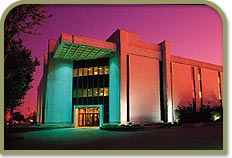Difference between revisions of "Genealogy"
| Line 22: | Line 22: | ||
[[Category:Family History]] | [[Category:Family History]] | ||
| + | [[fr:Généalogie]] | ||
Revision as of 11:34, 29 October 2008
Genealogy, or family history is research to identify ancestors. The Church of Jesus Christ of Latter-day Saints has a three-fold mission—to perfect the Saints, to proclaim the gospel, and to redeem the dead. That third part of the Church's mission is the reason for Latter-day Saints' keen interest in family history work. When people die, their spirits go to the "Spirit World" to await resurrection and judgment. In the spirit world, people retain their personalities and free will.
- In the spirit world, the restored gospel is preached to those who died without receiving it in mortality. Many of those in the spirit world accept the gospel, but without a body they cannot receive the ordinances necessary for salvation. The primary purpose of family history work is to obtain names and other genealogical information so that temple ordinances can be performed in behalf of deceased ancestors.
Work for the dead in temples does more than offer them the opportunity to be baptized (by proxy) if they choose to accept the gospel. On April 3, 1836, the prophet Elijah came to Joseph Smith and Oliver Cowdery in the Kirtland Temple. He conferred upon them the sealing power of the priesthood, making it possible for families to be sealed throughout the generations. (See Doctrine and Covenants, section 110:13, 14) This sealing together of families is another reason Latter-day Saints search for their ancestors. As they do genealogy work, they feel an upwelling of affection for their deceased ancestors and a desire to be bound to them in a family unit throughout eternity.
The Church does a great deal to forward family history work, not only for the efforts of the Saints, but to help people all over the world with family history work, even when it has no connection to redemption for the dead.
- The Family History Library of The Church of Jesus Christ of Latter-day Saints has the world's largest collection of genealogical information. In 1894 the Church founded the Genealogical Society of Utah to gather records that help people trace their ancestry. As new methods of preserving records are discovered, the library is able to store more and more information. Today the library has records of more than 2 billion names in data bases; 2.4 million rolls of microfilm; and 278,000 books. With the help of more than 4000 family history centers (branches) in 88 countries, the Family History Library is constantly expanding its prized collection of records ([1]).
- Family History Centers are branch facilities of the Family History Library in Salt Lake City. Centers provide access to most of the microfilms and microfiche in the Family History Library to help patrons identify their ancestors. Everyone is welcome to come to the centers and use Family History Center resources. Family History Centers are usually located at Mormon meeting houses and are staffed and operated by local church members. Staff at family history centers help to orient the patrons and instruct them in using the computers and databases, so they can find their ancestors. Often, they give classes to instruct people in how to conduct research. There are more than 3,400 centers worldwide. To find a Family History Center near you, click here.
- The Church operates a website, Family Search [2] through which anyone in the world can engage in family history research. The site gives special hints for people searching in various nations and among various ethnic groups. There is also a free PAF software download and links to other family history websites. The site offers access to over 150 million names.
- The Church sponsors events to encourage interest in family history research and to help those interested. In October, 2007, the Church sponsored an event in Hong Kong. [3] The exhibit included presentations from distinguished Chinese scholars, room-size charts explaining family history research, rare genealogy books and catalogs compiled by various national and provincial libraries in China and displays of personal papers, including scrapbooks, journals and photographs. The Family History Library hosts conferences through the year for special-interest groups. In 2006 the library hosted the ninth annual Hispanic Family History Conference.
- Church members volunteer to index names from old records, even when indexing has no relation to the Church's work for the dead. Thus, Latter-day Saints logged thousands of hours indexing the records for the Ellis Island project. Such efforts reveal once-inaccessible records worldwide and make them easily available to any interested person.

